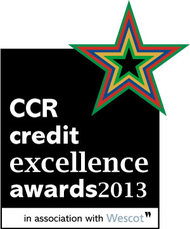To accurately assess the outlook for the credit industry, in particular the debt recovery market, it is essential to look at the sector from two perspectives. Both market comp etition and the global economy are primary factors in how debt recovery is going to proceed in the future. Not only does the UK’s economy as a whole play a big part in the performance of a debt agency, but so too does the performance of that company’s competitors.
etition and the global economy are primary factors in how debt recovery is going to proceed in the future. Not only does the UK’s economy as a whole play a big part in the performance of a debt agency, but so too does the performance of that company’s competitors.
The market as a whole is worth approximately £500 million, a figure that has not changed significantly since 2007, despite what was occurring throughout the financial world since that year. Competition is rife in the debt recovery industry, not only do large financial institutions and high street banks have their own departments that handle debt recovery, but the market is split between a few big name companies such as Wescot and many more companies that own a small percentage of the market share. One reason as to why there are so many debt recovery companies is that if collection rates are high and the business is efficient, there is more opportunity for a variety of aspects. Greater competition for example, has forced companies to present clients with greater price comparisons.
Looking more broadly, debt recovery companies have had to overcome a tumultuous economy, which has put pressure on their operations. Prior to 2007, there were a large number of personal loans being issued which naturally means a higher frequency of defaults; a stronger economy also provided customers with the means to eventually repay these debts. After the credit crunch however, consumers have been slow to borrow money and with more economic pressure on the individual, those who have defaulted are struggling to return their debt. This means that the industry as a whole has had to drastically change their strategies to remain abreast of the new difficulties.
For companies like Wescot, the outlook for the industry still remains positive. The fact that the market’s worth as a whole has not changed in seven years despite the banking crisis is testament to this. The debt recovery industry’s capability to adapt their methods quickly has ensured its security for the time being.

 involved in the recovery process. The financial services sector has suffered from decreasing levels of consumer confidence in recent times due to the current financial climate and the banking crisis. In order to rebuild trusting relationships with consumers, the industry has attempted to improve how debt collection agencies contact individuals, how they communicate with them and also how they recover the debt itself.
involved in the recovery process. The financial services sector has suffered from decreasing levels of consumer confidence in recent times due to the current financial climate and the banking crisis. In order to rebuild trusting relationships with consumers, the industry has attempted to improve how debt collection agencies contact individuals, how they communicate with them and also how they recover the debt itself. Understanding what contributes to sustained economic growth is extremely important in relation to making the correct decisions to bring about such change. Immediately following the credit crunch, and with families throughout the country struggling financially, the Bank of England introduced extremely low interest ways in the hope of cushioning the blow of the tough financial times. The interest rates remained low for a substantial period of time which did indeed improve the financial situations of families throughout the United Kingdom. Following these cuts to interest rates in 2008 it was reported that families had more money to spend after they had paid household bills. Annual discretionary income trackers assess how much disposable income a family has after the deduction of the cost of living. These trackers had shown that following the drastic reduction in interest rates, a typical families disposable income increased from approximately £139 to £165. This increase lasted for roughly two years after the interest rates were lowered and brought a stability to the economy in the United Kingdom.
Understanding what contributes to sustained economic growth is extremely important in relation to making the correct decisions to bring about such change. Immediately following the credit crunch, and with families throughout the country struggling financially, the Bank of England introduced extremely low interest ways in the hope of cushioning the blow of the tough financial times. The interest rates remained low for a substantial period of time which did indeed improve the financial situations of families throughout the United Kingdom. Following these cuts to interest rates in 2008 it was reported that families had more money to spend after they had paid household bills. Annual discretionary income trackers assess how much disposable income a family has after the deduction of the cost of living. These trackers had shown that following the drastic reduction in interest rates, a typical families disposable income increased from approximately £139 to £165. This increase lasted for roughly two years after the interest rates were lowered and brought a stability to the economy in the United Kingdom. new businesses. When compared to the figure of just 40% as recently as 2007 this shows a significant increase.
new businesses. When compared to the figure of just 40% as recently as 2007 this shows a significant increase. functions which are performed by a compliance department – identification, prevention, monitoring/detection, resolution and advisory. A compliance officer will initially identify any risks posed to a business or organisation, then create and implement systems and controls which protect against those identified risks. These controls are then constantly monitored and their effectiveness reported on. A compliance officer is on hand to resolve any difficulties with compliance as and when they arise and to offer advice to the business or organisation on rules and controls. Compliance is vital for complete customer confidence, helping to build up trust and improve client relationships through the consistent delivery of appropriate customer outcomes. Internal compliance systems are usually evolved through conversations with customers alongside adherence to external regulations.
functions which are performed by a compliance department – identification, prevention, monitoring/detection, resolution and advisory. A compliance officer will initially identify any risks posed to a business or organisation, then create and implement systems and controls which protect against those identified risks. These controls are then constantly monitored and their effectiveness reported on. A compliance officer is on hand to resolve any difficulties with compliance as and when they arise and to offer advice to the business or organisation on rules and controls. Compliance is vital for complete customer confidence, helping to build up trust and improve client relationships through the consistent delivery of appropriate customer outcomes. Internal compliance systems are usually evolved through conversations with customers alongside adherence to external regulations.

 If you receive a letter from a debt collection agency, it’s important not to panic. Many collection agencies, such as
If you receive a letter from a debt collection agency, it’s important not to panic. Many collection agencies, such as